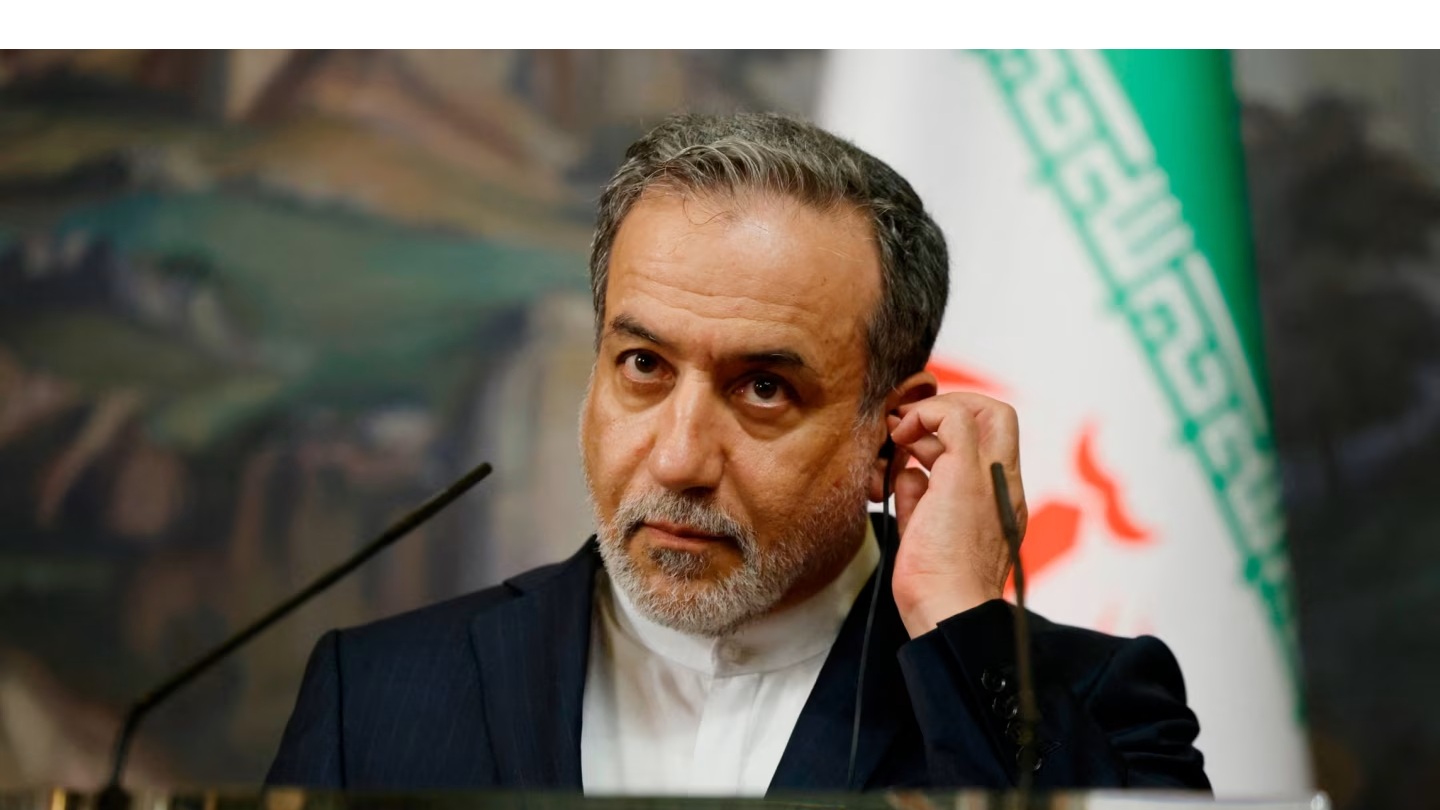Iranian Foreign Minister Abbas Araghchi on Saturday, issued a stark warning, saying that any reimposition of United Nations sanctions under the so-called “snapback” mechanism would effectively mark the end of Europe’s involvement in the Iranian nuclear file.
His remarks came amid heightened diplomatic tensions and renewed scrutiny over Iran’s nuclear activities, local media reports.
The snapback clause is part of the 2015 Joint Comprehensive Plan of Action (JCPOA), a nuclear accord signed between Iran and major world powers.
Although the United States withdrew from the agreement in 2018 during Donald Trump’s first term, the clause still allows for the automatic reapplication of sanctions if Iran is found in violation of the deal’s terms.
Speaking on Saturday, Araghchi stated that Tehran is currently reviewing the potential conditions for restarting nuclear negotiations with Washington.
“We are examining the timing, location, format, and essential guarantees that any such talks would require from our side,” he said.
His comment emphasized the importance of mutual trust and clear commitments.
Araghchi was also clear about the scope of any future negotiations.
He stressed that discussions with global powers would be strictly limited to Iran’s nuclear program and would not extend to other areas such as the country’s military capabilities.
“If talks are held, they will focus solely on nuclear issues and the creation of trust in Iran’s peaceful nuclear intentions in exchange for lifting sanctions,” he told a gathering of foreign diplomats in Tehran.
“No other matters will be open for negotiation.”
The diplomatic developments come in the aftermath of a violent 12-day conflict triggered by a major Israeli military offensive.
On June 13, Israel launched an extensive campaign targeting Iran’s nuclear facilities, military installations, and even civilian infrastructure.
The strikes killed hundreds and were described by Israeli Prime Minister Benjamin Netanyahu as necessary to “roll back the Iranian threat to Israel’s very survival.”
Iran condemned the strikes as a blatant act of aggression and a violation of international law, specifically the United Nations Charter.
The days that followed saw Iran respond forcefully, with both countries engaging in daily exchanges of missile fire.
The situation escalated further when the United States entered the conflict on Israel’s behalf.
Washington deployed advanced weaponry, including bunker-busting bombs, to hit Iran’s key nuclear facilities at Fordow, Natanz, and Isfahan.
The hostilities reached a climax when Iran retaliated by striking a major U.S. base in Qatar.
A ceasefire was declared shortly after, with former President Trump announcing the halt to hostilities.
Following the conflict, Iran made a significant shift in its nuclear oversight policy.
Tehran announced it would suspend cooperation with the International Atomic Energy Agency (IAEA), citing a deep mistrust of the watchdog’s impartiality.
This decision was cemented when President Masoud Pezeshkian signed legislation last week curbing the country’s engagement with the agency.
Araghchi confirmed that while cooperation with the IAEA hasn’t been completely severed, it will now operate under a different framework.
“Our interaction with the agency is not terminated, but it will be redefined,” he said, referencing the newly signed law.
Under this new legal framework, any future inspections of Iranian nuclear facilities by the IAEA will require prior approval from the Supreme National Security Council, effectively limiting the agency’s access and oversight capabilities.
President Pezeshkian, speaking earlier this week, criticized what he described as the IAEA’s “double standards” and warned that Tehran would not tolerate continued bias.
“For cooperation to be restored, the agency must abandon its selective approach,” he said.
Pezeshkian also issued a stern message to Iran’s adversaries, warning that any future aggression would be met with a “more decisive and regrettable response.”
As Iran recalibrates its nuclear diplomacy in the wake of military conflict and mounting international pressure, the future of the JCPOA and regional stability hangs in the balance.
With tensions running high and trust in international institutions eroding, any path back to the negotiating table will require significant concessions and guarantees from all parties involved.







